Commercial Truck Requirements in California
What Are the Legal Requirements of Driving a Commercial Truck in California?

All trucks are subject to state and federal laws and regulations to minimize accident risks. However, West Coast Trial Lawyers is aware that some truck drivers and commercial trucking companies will ignore safety laws in order to meet their deadlines and maximize profits.
A truck driver who is found in violation of California’s safety regulations and causes an accident may be liable to an injured driver for their losses. The majority of all truck accidents are caused by a truck driver who was not using reasonable care while driving or who was in violation of safety regulations. Below, we have outlined information regarding the required safety regulations for trucks.
If you were a victim of a truck accident, you may be entitled to recover compensation for your losses. Our truck accident attorneys are readily available to assist victims of personal injury. We will help strengthen your claim and negotiate with insurance companies to ensure you are given a fair settlement offer.To schedule a free consultation, please contact our 24/7 legal team by calling 213-927-3700 or filling out our quick contact form.
Interstate Commerce
According to the Federal Motor Carrier Safety Administration (FMCSA), Title 49 CFR, Part 390.5, interstate commerce is defined as traffic, trade, or transportation in the United States that is between:
- A place within a state and a place outside of that state
- Two places within a state and through another state or a place not within the United States
- Two places within a state as part of trade, traffic, or transportation that begins or ends outside that state and even the country
The above definition is often thought of as the stream of interstate clauses. This clause is open to different interpretations and can be difficult to agree upon. For the most part, interstate traffic is thought of as interstate commerce at least until it has reached its final destination.
Intrastate Commerce
According to the Federal Motor Carrier Safety Regulation (FMCSR) Title 49 CFR, Part 390.5, intrastate commerce is defined as trade, traffic, or transportation in any of the fifty states that is not covered under the rules of interstate commerce.
Commercial Motor Vehicle Regulations
According to the Federal Motor Carrier Safety Regulations (FMCSR), Title 49 CFR, Part 390.5, a commercial motor vehicle (CMV) is defined as a self-propelled or towed vehicle that is operated on a roadway in interstate commerce for the purposes of transporting property or passengers when that vehicle:
- Has a GVWR or GCWR of 10,001 pounds or more,
- Is made or utilized for transporting more than 8 passengers for compensation,
- Is made or utilized to carry more than 15 passengers, but is not used to carry passengers for compensation, or
- Is used to carry materials defined by the Secretary of Transportation as hazardous according to 49 U.S.C. 5103 and such materials are carried in an amount that requires placarding as stated in regulations set forth by the Secretary under 49 CFR, subtitle B, chapter 1, subchapter C.
Basic Requirements for CMV and CMV/CDL Trucks
Service Hour Requirements
There are limits to the number of hours a commercial vehicle driver can be “in service” according to Title 49 CFR, Part 395.3. For example, under Vehicle Code 21702 VC, it is a misdemeanor for a truck driver in the state of California to spend more than 12 consecutive hours on the road in a 24-hour period.
Service Hour Exceptions
Exceptions for service hour regulations only exist for emergencies.There are also exceptions for certain trades and vehicles that transport passengers.
Driver’s Maintenance Records
According to FMCSR, Title 49 CFR, Part 395.8, there are requirements and specific procedures for driver’s to document their service hours. There are also specific requirements for safekeeping service hour records. As with all regulations, there are exceptions to these timekeeping rules.
Commercial Vehicle Identification
Self propelled commercial vehicles need to be identified according to the FMCSR, Title 49 CFR Part 390.21.
Contact Us to Find Out How We Can Help
If you have sustained injuries as a result of a truck accident, our expert truck accident attorneys at West Coast Trial Lawyers will help you recover compensation for the losses you have suffered, including medical bills, property damage, lost wages, and pain and suffering.
Contact us today by calling 213-927-3700 or filling out our contact form to schedule a free consultation with our experienced, caring, and compassionate legal team.



